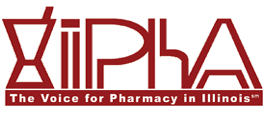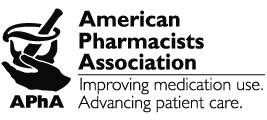How Should I Respond to a Medicare Conditional Payment Letter?
 Medicare benefits are crucial for many people, ensuring that they receive proper medical treatment. However, some people face situations where Medicare pays for certain treatments and then seeks repayment. A Conditional Payment Letter may be issued when Medicare has made payments for medical services that are later covered by a settlement or insurance claim. People who receive these letters may be concerned that Medicare repayment demands may affect their ability to use the settlements they have received to address their ongoing needs. In these situations, an experienced attorney can help respond to Conditional Payment Letters and work to resolve these issues successfully.
Medicare benefits are crucial for many people, ensuring that they receive proper medical treatment. However, some people face situations where Medicare pays for certain treatments and then seeks repayment. A Conditional Payment Letter may be issued when Medicare has made payments for medical services that are later covered by a settlement or insurance claim. People who receive these letters may be concerned that Medicare repayment demands may affect their ability to use the settlements they have received to address their ongoing needs. In these situations, an experienced attorney can help respond to Conditional Payment Letters and work to resolve these issues successfully.
When Will Medicare Issue Conditional Payment Letters?
In some situations, Medicare makes payments for medical services that should have been covered by another entity, such as an insurance company or a liable third party. These payments are termed "conditional," because Medicare expects to be reimbursed once the responsible party has been identified and compensation is received.
Situations where Medicare may issue Conditional Payment Letters include:
-
Accident cases: A person who receives a settlement or judgment from a claim may be contacted by Medicare to repay certain medical expenses.
-
Workers' compensation claims: When Medicare pays for medical services related to a work-related injury, it may seek repayment after a person receives compensation through a workers' compensation claim.
-
Liability claims: If another party is found liable for a person’s injuries, and the liable party’s insurance provider provides coverage, Medicare may seek repayment for the costs of medical care.
Steps Followed by Medicare When Recovering Conditional Payments
Understanding the process Medicare follows to recover conditional payments can help ensure that a person will be able to respond effectively to a Conditional Payment Letter. Here is an overview of the steps involved:
-
Reporting the Case to the Benefits Coordination & Recovery Center (BCRC): Pending cases will need to be reported to the BCRC. This can be done by the injured party, their attorney, or an insurer. The BCRC is responsible for coordinating benefits and recovering conditional payments.
-
Issuance of a Rights and Responsibilities Letter: After the case is reported, the BCRC will send a letter to the injured party or the injured party’s representative. This letter outlines the parties' obligations and the steps Medicare will take to recover any conditional payments made.
-
Issuance of a Conditional Payment Letter: Within 65 days after sending a Rights and Responsibilities Letter, Medicare will issue a letter detailing the payments made by Medicare that are related to the injury or claim. This letter is sent before the settlement, judgment, or award and provides an estimate of the amount Medicare expects to be reimbursed.
-
Issuance of a Conditional Payment Notification: After a person receives a settlement or judgment, Medicare will send a notification detailing the actions that a person is required to take. The person will have 30 days to respond and provide documentation of the settlement, proof of services received that were not related to the payments made by Medicare, procurement costs such as attorney fees, and documentation of other awards, judgments, or payments.
-
Dispute resolution: If there are any discrepancies or disagreements regarding the conditional payments listed, the injured party and the injured party’s attorney can dispute the charges. Supporting documentation must be provided.
-
Issuance of a recovery demand letter: Once the settlement, judgment, or award is finalized and other claims related to the case have been addressed, Medicare will issue a letter stating the final amount of conditional payments that must be reimbursed.
-
Assessment of interest: If the repayment is not made within a specified timeframe, Medicare will assess interest on the outstanding amount. The interest accrues from the date of the demand letter until the debt is paid in full.
-
Collection of debt by the Department of Treasury: If the debt remains unpaid, Medicare may refer the case to the Department of Treasury for collection. The Treasury Department has the authority to take various actions to recover the debt, including garnishing wages and seizing tax refunds.
How an Attorney Can Help With Medicare Demands
The Medicare conditional payment recovery process can be complex. At The Law Offices of Joseph J. Bogdan, Inc., our experienced lawyer can provide invaluable assistance during this princess by:
-
Negotiating with Medicare: We can negotiate agreements to reduce the amount of the conditional payment claim, potentially saving a significant amount of money.
-
Seeking waivers: In some cases, a person may be eligible for a waiver of the conditional payments. We can help determine whether our clients qualify and assist in applying for waivers.
-
Ensuring compliance: We can ensure that our clients comply with all Medicare requirements so that they can avoid potential penalties.
Contact Our Chicago Medicare Conditional Payment Letter Attorney
Responding to a Medicare Conditional Payment Letter requires careful attention and prompt action. For assistance with Medicare demands and conditional payments, contact the Illinois Medicare repayment lawyer at The Law Offices of Joseph J. Bogdan, Inc.. Call 630-310-1267 today to schedule a free consultation and learn how we can help you resolve these issues and avoid financial difficulties.














